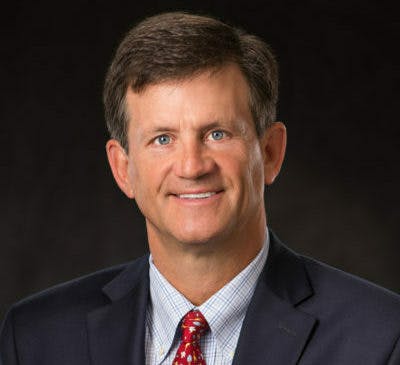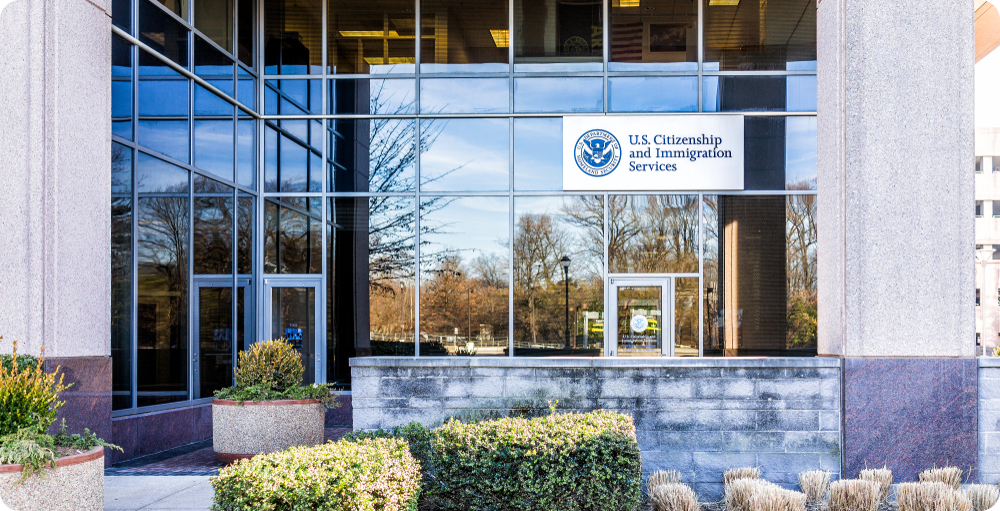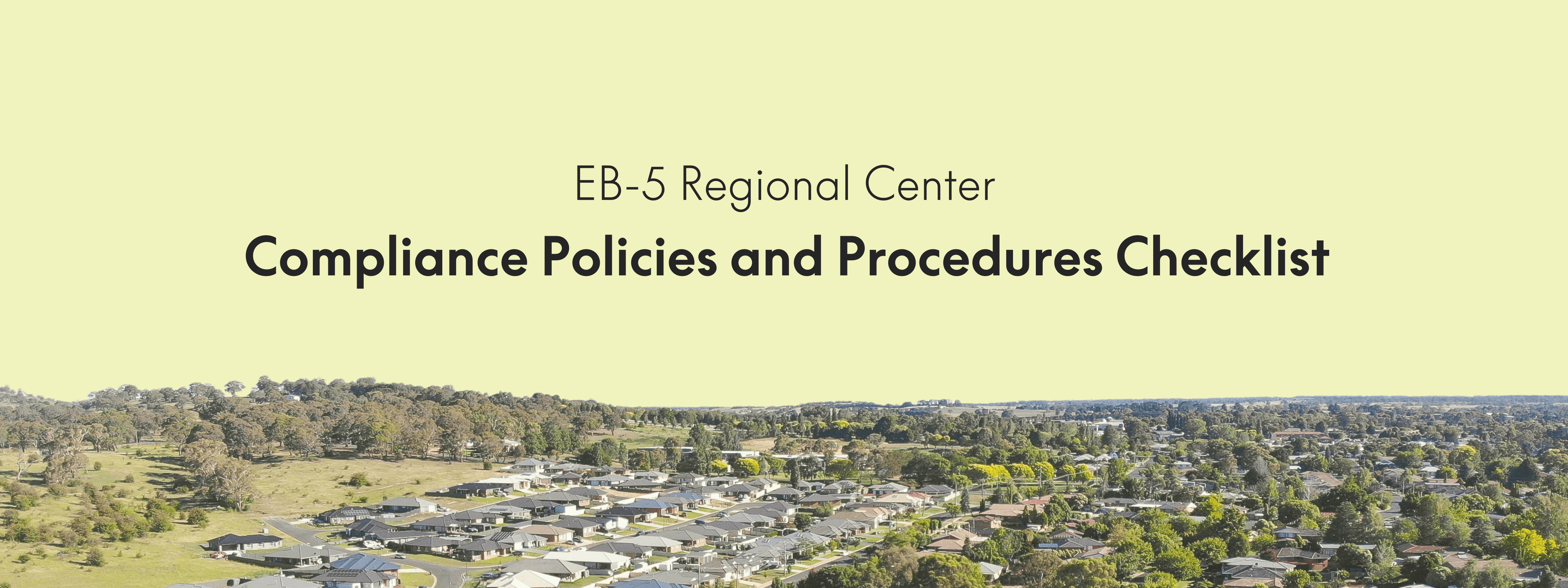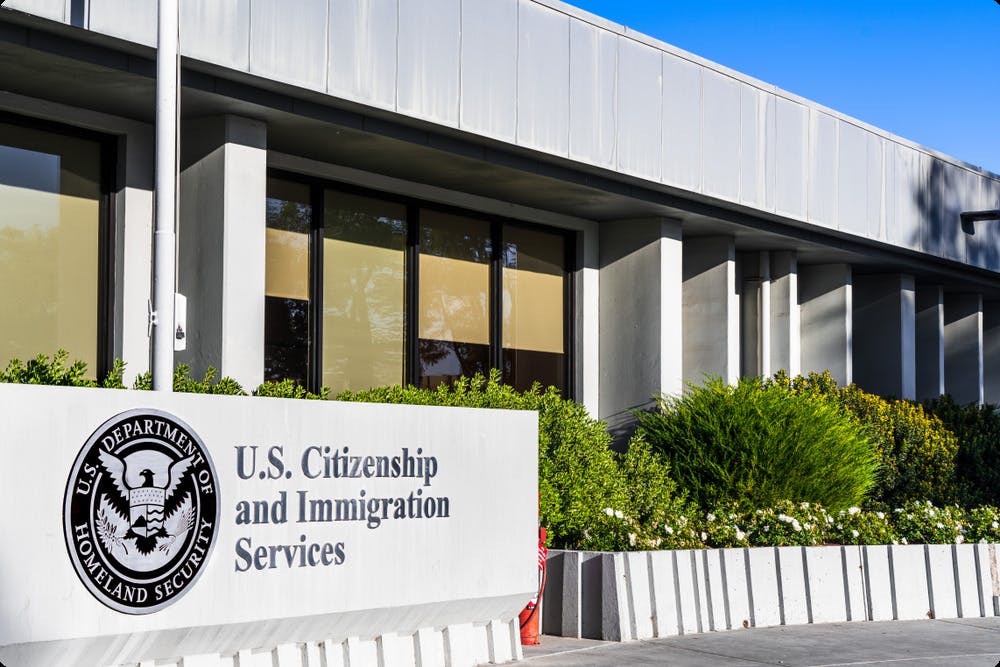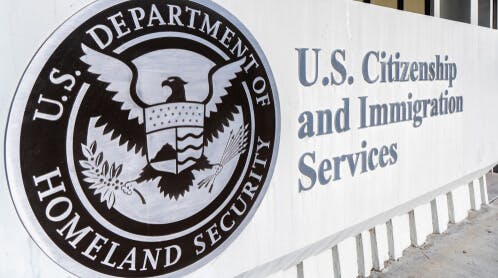On Oct 1, 2022, I hosted a webinar with three industry luminaries, to discuss what the Regional Center requirements are under the EB-5 Reform and Integrity Act of 2022 (RIA), and what needs to be done in order to satisfy them.
As an RIA Compliance service provider, I talk about how EB5BrokerDealer.com addresses these requirements to enable Regional Centers to certify their compliance (regional centers, if you are interested in a professional RIA Compliance Service, please schedule a meeting).
Securities attorney Catherine DeBono Holmes, immigration lawyer and former Acting Director of USCIS Robert Divine and EB-5 due diligence expert Rupy Cheema help explain the situation, the requirements and what needs to be done to address them.
As members of the EB-5 Securities Roundtable, Cathy Holmes and I have been reviewing and commenting on many of the provisions in this legislation, throughout its many iterations, since 2015, when it was originally referred to as the Integrity Act of 2015.
And while the new legislation was passed and regulations are in the process of being adopted by USCIS, the Regional Center requirements aren’t completely clear, so in this discussion we strive to outline the many new requirements with suggestions on how to properly address them.
What's the purpose of the Reform and Integrity Act?
There are two significant aspects of the RIA legislation that stand out: protecting investors and adjusting incentives that impact investment decisions of EB-5 immigrant investors. But in this article we’ll just focus on the protections adopted in the RIA and how USCIS is interpreting them. By protecting investors, the RIA isn’t changing the ‘at-risk’ investment requirements, but is instead adopting measures designed to protect against fraud and malfeasance.
In general, the RIA requires significantly more transparency and disclosures to investors regarding potential conflicts of interest.
Regional Center certification
The Reform and Integrity Act requires Regional Centers to attest that they and the new commercial enterprises (NCEs) and job-creating entities (JCEs), whose projects are sponsored by the Regional Center, are in compliance with all applicable securities laws as well as new EB-5 requirements. The certification begins, “I certify, to the best of my knowledge, after a due diligence investigation…”
Which professionals are needed?
Regional Centers will need to employ an independent investigative team, to confirm the claims made by all parties associated to the NCE, the JCE, and the Regional Center itself, as well conduct background checks on all control people involved with these entities.
Additionally, a fund administrator and securities compliance officer is needed.
Which bodies of law must be considered?
Regional Centers will certify compliance with all federal securities laws, state securities laws, EB-5 program requirements, and federal labor laws.
Compliance with Securities Laws
Catherine DeBono Holmes is an EB-5 securities law expert who outlined all the securities law compliance items and put together a checklist of the content required for an EB-5 Policies and Procedures manual.
Cathy’s checklist identifies the following Securities and Exchange Acts that are applicable to Regional Center certifications including securities registration exemptions, investigative requirements, and risk disclosures including conflicts of interest. The requirements fall under the following securities law acts:
The Securities Act of 1933
Securities Exchange Act of 1934
The Investment Company Act of 1940
Investment Advisers Act of 1940
State Securities Laws
Cathy: I want to mention how I approach compliance, and specifically, a compliance manual. This concept is borrowed from the broker-dealer and investment-advisor world.
Both of those types of registered professionals have had to maintain written compliance procedures and manuals for many years, and when they are examined by the SEC or by FINRA, in the case of broker dealers, the first thing the examiner will ask for is the compliance manual.
And then the examiner will say, “Now show me how are you complying with your own compliance procedures.” So it is important to that in a Regional Center compliance manual, the procedures describe how each one of the offerings sponsored by the Regional Center meet the requirements of all of the federal securities laws.
There are four federal securities acts to address in the compliance manual, in addition to the state securities laws.
The Securities Act of 1933
This Act says that every offering of securities is required to be registered with the SEC unless it is exempt.
Regulation S is an exemption for offerings to foreign investors. Regulation D is an exemption for private offerings to U.S.-based investors. Those are the two exemptions the compliance manual will focus on.
In addition, the Securities Act of 1933 requires that the issuer provide full disclosure to investors regarding the risks involved in making an investment. These are what we broadly call the Anti-Fraud provisions.
Regulation S for foreign investors
In your compliance manual, to show compliance with Regulation S, you want to make sure you require the appropriate Regulation S legend in your offering documents, and you want to describe in your manual the internal controls you use to confirm that your offerings are made in accordance with that exemption.
Specifically, when you're using Regulation S, you have to make sure that you're not conducting your offering in the United States and you're not directing the offering to the U.S. But if you are directing some part of your offering to investors here in the U.S, you have to show for that part of your offering that you comply with Regulation D.
Regulation D for U.S. investors
For compliance with Regulation D, you're going to need several things:
One, you're going to need ‘bad actor’ questionnaires from everyone involved: the officers, directors, promoters of the job-creating entity (JCE), and the new commercial enterprise (NCE).
Two, you're going to need a Form D filing with the SEC.
Three, you need a procedure for showing that your offerings are directed to accredited investors, you have a method of proving that either the investor has certified to you that they are an accredited investor, or if you're using a verification process, what process are you using to verify accredited-investor status.
And that is important if you are using general solicitation. I won't go into that in great detail, but generally speaking, if you're going to use general solicitation, meaning you have information about offerings on a website or you otherwise make offering information public, you have to verify that your investors are accredited under SEC Rule 506(c).
All of those compliance procedures should be addressed your compliance manual. Those procedures will be the back-up you will use to certify compliance with the Securities Act in your annual certification to USCIS.
Material misstatements and omissions, background checks, anti-fraud checks
In addition, your compliance manual should describe the procedures that you use to assure that your offering documents do not contain material misstatements or omit material information.
Some of the things you will want to consider are background checks, site visits, interviews with the management teams of the NCE and the JCE.
Going back to my anti-fraud list, you will also want to show that you review project budgets, capital structure, construction timelines, feasibility studies, intended use of EB-5 funds. As the regional center sponsor of every offering by an NCE, you’re required to show that you’re looking at all of these things so that you can demonstrate your due diligence to prevent fraud in connection with those offerings.
Due diligence investigation: reviewing the numbers, documents, and people
Rupy: Our firm EB5Diligence has developed due diligence procedures that are in some ways specific to each project, but generally speaking we always have to take a deep dive into he business model. As Cathy mentioned, we look into the financial model, we review the assumptions and determine whether they are reasonable.
We do our own sensitivity analysis, and our own market research with the goal of confirming that the repayment timeline and the repayment strategy is reasonable and feasible, and to identify any risks that we see regarding the claims being made about rates of return, or when they're likely to get paid back.
Other items that are always reviewed are the backgrounds of management, so we run checks on all individuals that are involved in the companies, as well as on the entities themselves. We look for liens, bankruptcy, bad actor disqualifications, or pending litigation.
We review management bios to make sure that they actually align with what we’ve found through our background searches, such as employment history and education. There may be news articles about the management or the project or local concerns about the project.
There's also qualitative analysis.
Meetings with management tell you a lot. The quality of information provided to us tells me about their level of sophistication and understandings, or their lack of experience. Sloppiness and inconsistencies raise red flags. A site visit is always informative.
We evaluate whether there are internal controls like an in-house accountant or are there other professionals that have been retained. We always want to review the corporate governance documents to confirm ownership and that the companies are dually formed.
We review the operating agreement or shareholder agreement to make sure they're aligned. The terms that are offered in the Private Placement Memorandum (PPM) must be completely aligned with all the underlying documents.
If a project has an operating history, we’ll want to look at current financial statements and analyze any tax returns filed. Those are some of the ways we identify or confirm the risks.
Confirming the disclosures in the PPM are complete
Kurt: Rupy, you’ve been performing due diligence on the EB-5 investments that my broker-dealer and my firm eb5Marketplace have been selling over the last 10 years. And I find it important and helpful to know that the disclosures that we see in the PPM are complete, because until you’ve conducted a proper investigation, we just don't know.
Do you remember the time you suggested, and we informed the issuer that they needed, a disclosure about the possibility of a hurricane in Puerto Rico as a risk to their project? And we got push back: “Hey, we haven't seen a hurricane since 1913.” I don’t remember the exact year, but, of course, what you don't want to have happen is for investors to say, in hindsight, “Look, they did not disclose risks properly, and these risks were reasonable to assume.”
Luckily we got those risks added to the offering and I’m sure the issuer is quite relieved that those risks were disclosed.
Satisfying the anti-fraud aspects of the ’33 Act are the most time consuming and costly aspects of a proper compliance service.
Rupy: As you know Cathy, as securities counsel, you will rely on the information that's being given to you, right, to draft the PPM? And you may not have the complete picture during the drafting stage.
Cathy: Exactly. I'm relying on self-representations by representatives of the JCE to tell us what's really happening with the project.
Coming back to this compliance manual concept, the idea is that Regional Centers are now being asked to show what they are doing and to do due diligence on every offering that they sponsor.
So you have to show USCIS, here's how we do it, and you have to have documentation so you can show USCIS exactly what we did. That's how this compliance regime is likely going to work in practice.
What USCIS wants to see from due diligence
Robert: Let me add, I've seen USCIS audits of Regional Centers that have taken place before this new act was passed. And most of what happened in those audits is USCIS officers would go through the Regional Center application to see that all these representations about things that were going to be done and diligence that was going to be performed, and they would then ask, “What have you been doing to carry that out?”
It's exactly what Cathy is talking about. So you have every reason, based on past experience, to expect that's exactly what they'll be doing going forward.
Regional center role now similar to broker-dealer
Kurt: Cathy, you compared the written supervisory procedures of a broker-dealer to the policies and procedures manual that we see being required here under the RIA compliance.
I also see a similarity between the role they're putting the Regional Center in as similar to the responsibilities typically put upon the broker-dealer.
Cathy: Yes, that's correct. That's what Congress decided to do in the RIA. There's been a lot of fraud in the EB-5 industry, so Congress determined that the best way to address it is to make some licensed entity responsible for trying to mitigate the dangers of fraud to the greatest extent possible.
In the securities world, that responsible party is the licensed broker-dealer. In the EB-5 world, they put that responsibility on Regional Centers. There's a lot of parallels now between what a regional center has to do and what a broker dealer does.
Kurt: I don't know that a lot of people understand how the investment community operates, but the SEC doesn't generally police broker-dealers. They outsource that responsibility to FINRA.
As an analogy, broker-dealers are the cops. The cops are there to make sure that everything is done properly. That's their responsibility. They can get in big trouble if they don’t properly supervise the sale of an offering or the behavior of the salespeople.
FINRA, in this scenario, is like the internal affairs of a police department. They're going to review the activities of the police officers to determine if a more thorough investigation is warranted.
What agency regulates foreign agents?
But in EB-5 offerings, which solicit investors primarily outside the U.S., FINRA does not regulate foreign agents. FINRA, like an internal affairs department, is only allowed to oversee the activities of licensed broker-dealers. So without involvement of broker dealers, there are no police officers (broker-dealers) and thus no one to supervise the investment sales activities.
This leaves the SEC to supervise Regulation S offerings, but the SEC's really not built for that.
This is now changing, but unfortunately, instead of requiring the use of securities professionals to oversee the solicitation of securities and compliance with all securities laws, we now have USCIS charged with supervising securities compliance. And I think that is going to be a problem in many ways.
Securities and Exchange Act of 1934
Sometimes referred to as ’34 Act, the Act states that persons involved in the sale of securities are required to register with the SEC as a broker-dealer unless an exemption is available. Cathy, can you tell us a little bit about how the ’34 Act plays into the new RIA requirements?
Cathy: Yes; so there are three main issues that you have to address when you think about compliance with this provision of the ’34 Act.
Registration
Number one, anybody who's receiving compensation in connection with the sale of securities is in the United States, whether they live here, whether they're doing business here or they're soliciting people here, has got to be registered as a broker-dealer under the Securities Exchange Act of 1934, or they cannot be paid.
The SEC does allow foreign persons who have no business in the US, don't have offices in the US, and don't solicit persons in the US; to receive compensation in connection with a sale of securities to non-US persons.
So that has established a precedent that you can pay those types of non-registered, non-U.S. promoters.
In addition, your compliance manual is going to need to address whether the officers, directors, and employees of the Regional Center, the NCE and the JCE are required to be registered as broker-dealers. We know USCIS has asked the question in the past: “Are these people required to be registered broker-dealers?” And the answer is no — not if they meet the requirements of what's called SEC Rule 3a4-1. And there are several conditions that apply to that exemption.
So your compliance manual is going to say, “Our policy is that we pay U.S. broker-dealers for solicitation in the U.S. and we only pay non-U.S. persons for solicitations outside the U.S. Your manual should say how you make those determinations that you're only paying those people.
Your compliance manual will describe the records of who you pay and describe the representations required to be made by non-U.S. agents, for example, that they don't have business in the U.S.
These procedures will provide evidence that you are meeting all the requirements of the ’34 Act.
Compliance with state securities laws
Kurt: And then regarding state securities laws. I generally don't hear people talking about the requirement of meeting state securities laws. What is USCIS going to require in order to satisfy state securities laws?
Cathy: It is specifically referenced in the Reform and Integrity Act that Regional Centers show they have met the requirements of state securities laws.
State securities laws, generally speaking, will mirror the federal requirements in some respect. But every state's laws are different. So when we're looking at evidence of compliance with state registration, that refers to registration of the offering itself. There are a couple of things you need to be aware of regarding state securities laws.
One, all state laws are preempted for every offering that is conducted in accordance with Regulation D. So, if you comply with Reg D, you're not required to comply with state registration, but you are required to make any state notice filings required by the states in which you make the offering. That means you're going to have to do ‘state notice filings’ to show compliance with state securities laws, if you’re using Reg D.
For Reg S, just know that not every state has a regulation S exemption. In fact, very few of them do.
But there may be other exemptions available under state law. So the point here is you have to look at each state in which the offering is being conducted to make sure that you have some evidence that you’re in compliance with any exemption from registration.
Lastly, I'll mention that every state has its own Investment Adviser rules and you have to show that you've looked at those and made sure that the Manager of the NCE is in compliance with any exemption that applies under the state law.
The policies and procedures manual
Kurt: Robert, when I look at the policies and procedures manual it looks to me that you need to identify what needs to be done, how it will be done, and then how to show that it's been done. Could you give us a little bit of flavor to the thinking here?
Robert: The law requires policies and procedures, whatever that means. You can cram it all together into one manual — you can have different policy and procedures documents.
Regional Centers are going to have all kinds of documents that need to all essentially say the same things. Much of it is parroting the requirements in the RIA, but I think that the expectation of the government, and whoever it was whispering in the ear of the legislators — probably the SEC — to get them to put these requirements in there.
Because they expect these policies and procedures to have a kind of a practical bite to them and not just be a recitation of the requirements of the law. They need to give a flavor that this will happen and how it will happen.
Documenting the requirements
Nobody's looking for a grade of A from USCIS. They’re just looking to get by.
They want not to be held up, such as get a request for evidence (RFE), get a denial (NOID) of their Regional Center, or get extra hassle when they get audited, or have their investors have extra hassle when they're being adjudicated.
So there is reason to try to do a good job and be comprehensive, and provide a sense that there really is a process in place that will ensure that these requirements are met.
I remember being in charge of a federal agency that had 15,000 people employed and a $2,000,000 budget. And I remember saying at the time, “I can put out all kinds of policies and descriptions of procedures that I want everybody to follow, but those can just sit there and nobody pays attention to them and nobody does them. There has to be accountability.
There has to be a follow-up to make sure that people are doing what they're supposed to be doing. And I would say that that reality is probably your best aspect of a sales pitch.
That is the most compelling argument in my mind for having somebody in a role like yours that makes sure that people are doing what they're supposed to be doing and that there are documents to prove it, so that when the auditor comes in, it'll all be clear. This has been done, this has been done, check here, check there. This supporting documentation is in the file that shows what happened.
There's general stuff that a Regional Center needs to be doing, but most of what a regional center needs to be doing is scouring each offering and project as it gets going.
The focal point of a review: the I-956F filing
And the focal point for that scouring is the filing of the I-956F, the project application that the Regional Center signs certifying that after due diligence, everybody involved is going to be following the rules and the laws. And they're going to keep doing that.
I think in the context of leading up to the signature by the Regional Center on that form, there needs to be a very systematic collection of information from the NCE, the new commercial enterprise, that's organizing the offering, and the project company that typically through the NCE, to ensure that it's set up to comply with all the rules.
Cathy walked through a whole bunch of securities rules and exemptions that are needed in order not to do things that are nearly impossible to have to do. That needs to include: Which exemption are you using for that? And which of these exemptions are you using? What notice filing have you made? What else is going to happen?
This is just practical stuff making them confirm which angle they're pursuing to meet the requirements and meet the exemptions from the requirements that they need. And that's just kind of the beginning.
How are you dealing with promoters? What are you doing with this, that, and the other. So it's a very practical iteration between the Regional Center and the NCE.
Kurt: It is very practical. We're going to push back on answers that we don't like and it might be more difficult for a Regional Center that's maybe less certain about what the NCE should be providing, and to know how hard to push back on some of these things.
Robert: Well, look, I've done deals where you guys are involved in the role you're talking about and we do good work in putting deals together. But you guys have asked some very good questions a couple of times, made us go back, scratch our head and think, we might not have articulated that as well as we need to, or we maybe we need to include this, that and the other.
So it's a healthy exercise and having knowledgeable and experienced people in the room who've been through it before and are paying attention and know what really is required, poking on you a little bit, is always a good exercise.
Kurt: I appreciate that.
Robert: And keeping records of everything as well. That's a very important piece that people don't naturally do, in my experience.
Rupy: A broker-dealer has to do sufficient due diligence to satisfy FINRA, so now the interests of the Regional Center and broker-dealer are really aligned with what the Regional Center needs to accomplish.
Cathy: One other point I’d like to add is when Robert says you need to make sure you retain records of what you actually did. Put a list of what records you're going to maintain into your manual so that the person who's doing it knows what has to be in there.
You want everything to match. The manual says, Oh, we're going to do this. So we do that. The manual says we're going to keep these records. So those are the records you’ll want to make sure you have, and put someone in charge of checking off that you have all those records.
Robert: Before you file the I-956F.
Cathy: Yes.
Promoters: registration and requirements
Robert: And then there's stuff beyond that that you need to do. So back to the promoters.
Kurt: Promoters need to register. The NCE must conduct due diligence on the promoters which includes overseas background checks. Maybe we should just touch on that one, Robert; that's a difficult one to get our head around.
You’ll need to do some due diligence on foreign promoters, so the question is how thorough the background checks need to be.
You also need to have a written agreement with all promoters. And this is an important document because it's going to outline to the promoters what they can and can't do.
Robert, do you think the industry is prepared for these new requirements?
Robert: Well, you know, I hear things that are worse than what I've seen so far. What I hear is that there are some Regional Centers who are cleverly devising schemes to have some kind of uber-broker in one place. Maybe even outside the US, who has an agreement with the NCE that's making the offering, and that there won't be any written agreements otherwise filed, and no other promoter filings made other than that.
And I think the people who are conceiving that scheme may think for the moment that they're clever, but in the end, that's going to turn out to be a failure and that's going to be a problem for them and everybody who invests with them.
Because for USCIS there's several ways this is all going to come together.
Who needs to disclose compensation
One, every promoter is supposed to be filing this registration, and in the registration they say who they have agreements with. And every investment needs to include a written disclosure to the investor of everybody who's getting paid from the deal.
And that clearly needs to include the people who are working right there with the investor, and anybody who wants to argue that you don't need to disclose the compensation that the person who's standing there, talking the investor into the investment and getting their signature on the documents, is living in some kind of parallel universe; because that's the most important conflict of interest of all.
And any scheme that's designed to prevent the disclosure to the investor of that person's or that agency's compensation is just trying to fight against the spirit and, ultimately, the enforcement, of the rules.
So assuming that that disclosure is made, then that has to be filed with the I-526E. USCIS will see the disclosure made of who got what from the sale of the offering.
What do you think they're going to do? They're going to go see that each one of those promoters has registered. And if they're not registered, now we’ve got a problem.
The consequences of non-disclosure
Who’s problem and how that's all going to shake out is the issue. Is it going to result in a denial of a I-526? Is it going to result in enforcement and sanctions, maybe debarment, maybe termination of Regional Centers or the NCE who isn’t following the requirements?
This can ultimately backfire to investors and cause them to be denied or revoked. It's a bad cycle. It's all designed to kind of fit together and result in a little ecosystem where you can't get around the requirements.
And I don't think that some people have thought that all the way through. I believe in the end it's going to be necessary to disclose all those compensations and all these people up and down the chain are going to need to be registered as promoters. And I don't want my clients who do that to be competitively disadvantaged with others who are not following those rules.
And I can tell you that I've made comments to USCIS about the forms. I am bringing this issue up poignantly to USCIS so they cannot ignore it. They cannot not realize that it's there. And I believe they will follow up on it.
Fund administration: how it works
Kurt: Moving on to fund administration. This is a complicated service, and involves the fund administrator to co-sign on all releases of money, and, therefore, involves substantial liability.
I would suggest that when you select a fund administrator, select a firm that understands the EB-5 industry, and who has procedures in place that they're using over and over again.
Robert, can you walk us through the requirements on fund administration?
Robert: Yes. The main requirement is that money that comes into an NCE that is invested by the EB-5 investor into the new commercial enterprise must be placed into what the law calls a separate account. The capital needs to be placed into a separate account and cannot be mixed together with other money, so there will be complete transparency and accounting that shows the flow-in and flow-out of EB-5 capital.
The separate account of the NCE must be with an insured US bank. The separate account can also be, for a time, an escrow account.
I think there'll be far, far less use of escrow than there ever was because the separate account that's required by fund administration acts, in effect, as an escrow account.
So the fund administrator is in effect the escrow agent who's making sure that the money is being dispersed appropriately according to the documents that are in the deal. That doesn't mean you can't also have escrow, but to me it seems like a pretty superfluous extra layer of effort and cost.
But there has to be a separate account at the level of the NCE; and if the project company, the job-creating entity, is affiliated with the new commercial enterprise or the regional center, then there has to be a separate account at the JCE level, that only accepts EB-5 capital into it.
And it doesn't come out of this account until the fund administrator has confirmed in writing that the conditions have been satisfied according to all the documents of the deal.
I believe that the people writing this were contemplating the kind of process that anybody who's ever gotten a commercial loan understands where the bank doesn't just give you money.
At the beginning a bank will say, “Here’s your loan. Go build something.” Then, “Tell us when you need money and tell us exactly what it's for and give us supporting evidence, and then we'll give you a draw to cover that and no more.”
“And then when it's all done, we'll confirm that all of it was correct and spent properly. And we'll do some audits, follow up to make sure you spend it only on what you were supposed to.”
Because banks have learned over time that when people get their hands on a bunch of money, they sometimes lose their head.
And I can tell you from my experience in EB-5, that phenomenon is very true. And so this is designed to counteract that and require the discipline of the involvement of dispassionate, unconnected third parties whose job it is to make sure that things are done the way that they were represented they were going to be done.
Who can be a fund administrator
The fund administrator could be a lawyer, it could be an accountant, it could be a company that makes a business of being a fund administrator. But they can't be your lawyer. It can't be the NCE’s lawyer or the regional Center’s lawyer or the JCE, or even their normal accountant. It has to be somebody whose only role is doing this properly.
So they're not beholden to those folks. It keeps them independent. This is not a new concept at all and there were some parties who were doing this kind of thing before the RIA and that's great now that everybody has to do it.
And then there has to be periodic information generated.
EB-5 investors are able to request information from the fund administrator; to see documents about how their money's been handled. And they are entitled to get that within like 30 days.
And then documents have to be kept for a long time just to confirm what was done.
When the NCE and JCE are affiliated
Rupy: So once the money is released from the NCE to the JCE, it can go into the JCE’s general operating account, right? There's no separate account required for the JCE?
Robert: There is if it's an affiliated JCE. So if anybody who's associated with the NCE or the Regional Center is involved with the JCE, then it's an affiliated JCE and there has to be a separate account at that level.
It's a little fuzzy, unclear, how it works when there are two separate accounts at two levels. Because, ostensibly, no money gets released from the top level until it's ready to be spent at the JCE. So you would think in a way it's just going to be a double flow right off the bat. I mean, the minute it gets released from the NCE, it's appropriate to release it from the JCE separate account as well.
And I'm sure there are going to be people who go ahead and release from the NCE's separate account into the JCE separate account earlier than maybe prudence might suggest. But they better not let money come out of the JCE separate account until it's ready to be spent and not just hand them money.
Rupy: And what if you are repaying bridge financing, let's say, to an owner of the JCE?
Robert: Well, if that's part of the business plan, then I think it just needs to be documented that that's what it's for. And the documentation about the bridge financing: how it was injected, how it's been spent. And the fund administrator could say, “Hmm, yeah. Okay. The business plan included that the money was going to be spent on that; and there's proof that the money being replaced was used properly on the job-creating project just as EB-5 money would’ve.”
And then the fund administrator can authorize that disbursement.
Record retention: what needs be available for USCIS
Kurt: Record retention. Obviously we're not getting into a lot of details here, but, Robert, off the top of your head, what are some of the records that need to be available to USCIS?
Robert: A lot of documents that were behind the preparation of plans and the PPM and agreements; but then all kinds of documents about what happened in terms of actually executing the business plan and the flow of money.
So the most important documents for retention, in my mind, are all those draw requests and the payments because those end up becoming the documents for the I-829. But they also need to be kept by the parties involved.
There are a bunch more types of documents, but it's really about the flow of the money. It's mainly about showing how the project progressed and how the money flowed, to show that it was done properly, and nothing was diverted.
Kurt: Rupy, when you do due diligence you have to keep records available for a FINRA or SEC audit. What kind of records do you need to keep filed and immediately available?
Rupy: When we do the due diligence we do have to turn over the whole file to broker-dealer so they can keep it on record for a FINRA review. It's essentially includes the whole offering package. Any material agreement that we have reviewed. Any analysis that we've done on the financial model. So all that file gets turned over to the broker-dealer.
Robert: Kurt, there's one other thing that needs to be kept. It's important and a specific requirement to keep documents showing what payments were made to all the promoters.
So there is a written disclosure for going to the investor about what people were going to get, or are in the process of getting paid. So the Regional Center needs to keep records of what promoters actually got paid and will be paid, and documents showing what the payments were made and to whom.
Marketing materials
Kurt: What I find as one of the most challenging things in selling an offering is getting compliance approval on marketing materials. Things change regularly, and so you get approval on market materials, but then something changes and now you need to go back and approvals again. And when compliance says change this and avoid this, there is yet again a roadblock to solicitation activities. Which the sales department hates.
So marketing materials can add a complication and they can take time because getting compliance approval does slow things down. And then of course if the issuer decides to modify them, well you’ll want to make sure that you have version control of those documents.
So we built an online portal where the issuer loads up their marketing materials, our compliance team reviews those. Our chief compliance officer either gives final approval or provides advice on how to make the marketing materials more accurate, less promissory, less exaggerated, whatever the issue happens to be.
And then once it is approved, it moves into a location on the portal where it's available to agents that have an agreement in place.
Labor law compliance: who does it apply to?
Kurt: Labor law compliance. Robert. Can you give us a sense of what are we looking for here?
Robert: I don't know, I don't think anybody really knows. In my preparation of satisfying this requirement, I looked and found some documents, some general government documents about labor law compliance that threw in a checklists of things that people need to be doing.
The law is super unclear about who this really relates to. Technically, you could read it to say that it applies to the Regional Center, which is kind of nonsensical in the sense that Regional Centers hardly employ anybody.
And I think this really arose out of some union complaints, that Catherine knows all too well, about some particular hotels, arguably, violating union laws, which were pretty well unfounded.
But I think ultimately it's going to be interpreted to be meant to relate to the JCE.
But for now, it says the Regional Center and I think it's wise for the Regional Center to have the NCE and the JCE report that they have Labor and Employment Law council, and identify them. And that they're committed to complying with federal and state labor laws.
But I don't think as a practical matter, it's going to go beyond that until USCIS starts doing some audits and more publishing that puts meat on the bones of this requirement in the law.
Watch to full video podcast ‘EB-5 RIA Compliance’
Note: Robert Divine developed these comments about the post-RIA EB-5 forms, which were submitted to USCIS about how some of the regulations should be interpreted and requests for clarifications.
Cathy’s Policies and Procedures content checklist was developed with input from the EB-5 Securities Roundtable.
Regional Centers, if you are interested in a professional RIA Compliance Service, please schedule a meeting.



